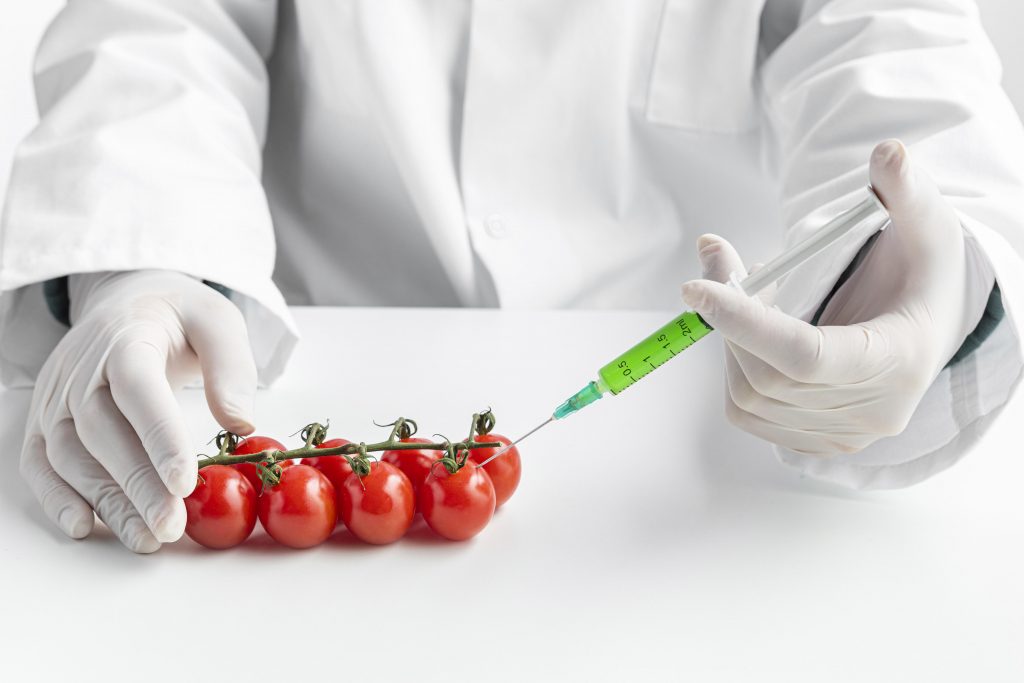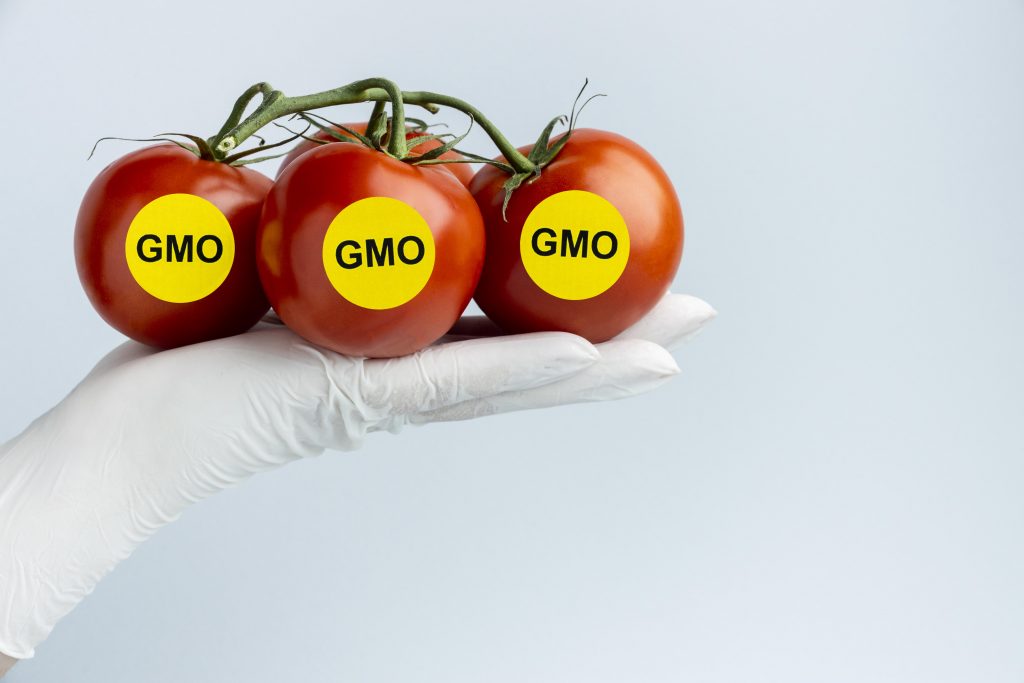5th floor, Lakshmi Sharada Arcade,
6th Main Road, No 251,
17th Cross Road,Sector 7,
HSR Layout,Bangalore,
Karnataka-560102

The recent technological advancements have encompassed all fields including food and nutrition. In this regard, the 21st century has witnessed developments which were unthinkable and unheard of earlier.One such incredible scientific invention in the field of nutrition has been GMO which stands for genetically modified food. But the question arises whether the consumption of this kind of food will in fact do us more harm than good or not. In order to fully understand and explain it's positives and negatives and finally conclude whether it is fit for public consumption or not, let us first come to terms with it's precise meaning.
What does the term "genetically modified food" exactly imply??
Genetically modified foods include those food items that have been manufactured or sourced from animals, plants or other living beings like microbes etc in whose basic genetic make-up, ie. the DNA, extensive variations and transformations have been made by means of complicated genetic engineering methods and processes. These methods are artificial and not natural ones like mating, cross-breeding etc and they cannot occur unless these artificial means such as making genetic alterations by way of taking a gene from one organism and then transmitting the same into the DNA of another organism etc are adopted. These processes are generally carried out in a laboratory where the genes of a particular plant, animal etc are shifted into another distinct plant or animal species so that the desirable characteristics of one can be seen and found in the other. Various vegetables or fruits like corn, soybeans, sugar beets, tomatoes, rice, potatoes, etc undergo genetic modification processes. Among animal products, the most prominent examples of genetically modified foods are dairy products like milk etc and poultry products like chicken. Especially, in the case of dairy products like milk, well-known cattle breeds such as Holstein Friesian and Jersey cows are genetically modified in order to increase the quantity and improve the quality of the milk that is produced from them and also to incorporate certain desirable traits in the milk produce like low lactose content etc by injecting certain specific bacterial-type genes into the embryos of these cows through complex genetic engineering techniques.

Having second thoughts about the safety of genetically modified foods?? Here are some insights in this context:
Now the question arises whether the consumption of genetically modified foods is safe or not. This is a hotly debated topic and as of now there are different opinions among scientists regarding this matter. Concrete scientific proof in this area is yet to be fully unearthed. However, if you are looking for possible answers to this question, then continue to read below for some facts which may help you to make the correct choice when it comes to this issue:
Conclusion:
So, the question remains whether we should go for such genetically modified foods or not. The answer to this lies in the fact that the risks associated with these foods are usually much more than their supposed benefits in the majority of the cases where natural foods are readily available. But there are still some very impoverished regions in countries like India where the population cannot afford or are unable to get access to even the most basic nutritious foods and are afflicted by several serious ailments like anemia etc as a result. In some poor countries, food scarcity has become such a huge problem that it is even claiming a large number of human lives. For these places, genetically modified foods might be a practical solution until and unless naturally produced foods are made adequately available to the people. But if you look at the overall picture, then it may not be a very wise decision to choose such foods over naturally produced foods due to their various speculated as well as proven health hazards until the time when fully conclusive evidence is found which proves the contrary to be true- that such foods are fully fit for public consumption. But no such information is available till now which is fully reliable. Some statements which were made that such foods are totally safe are yet to be absolutely verified. So, in the present scenario, genetically modified foods are hardly the final solution for the world's nutrition problems. But the final decision is entirely upto you and if you are still in doubt regarding what choice you should make in this matter, then remind yourself of this fact that venturing into unknown territories by putting your health on the line without being fully aware of it's exact health effects can have potentially disastrous future consequences for you. As you already know, half knowledge is always dangerous. It's your health and well-being that is at stake here. So better play it safe!!